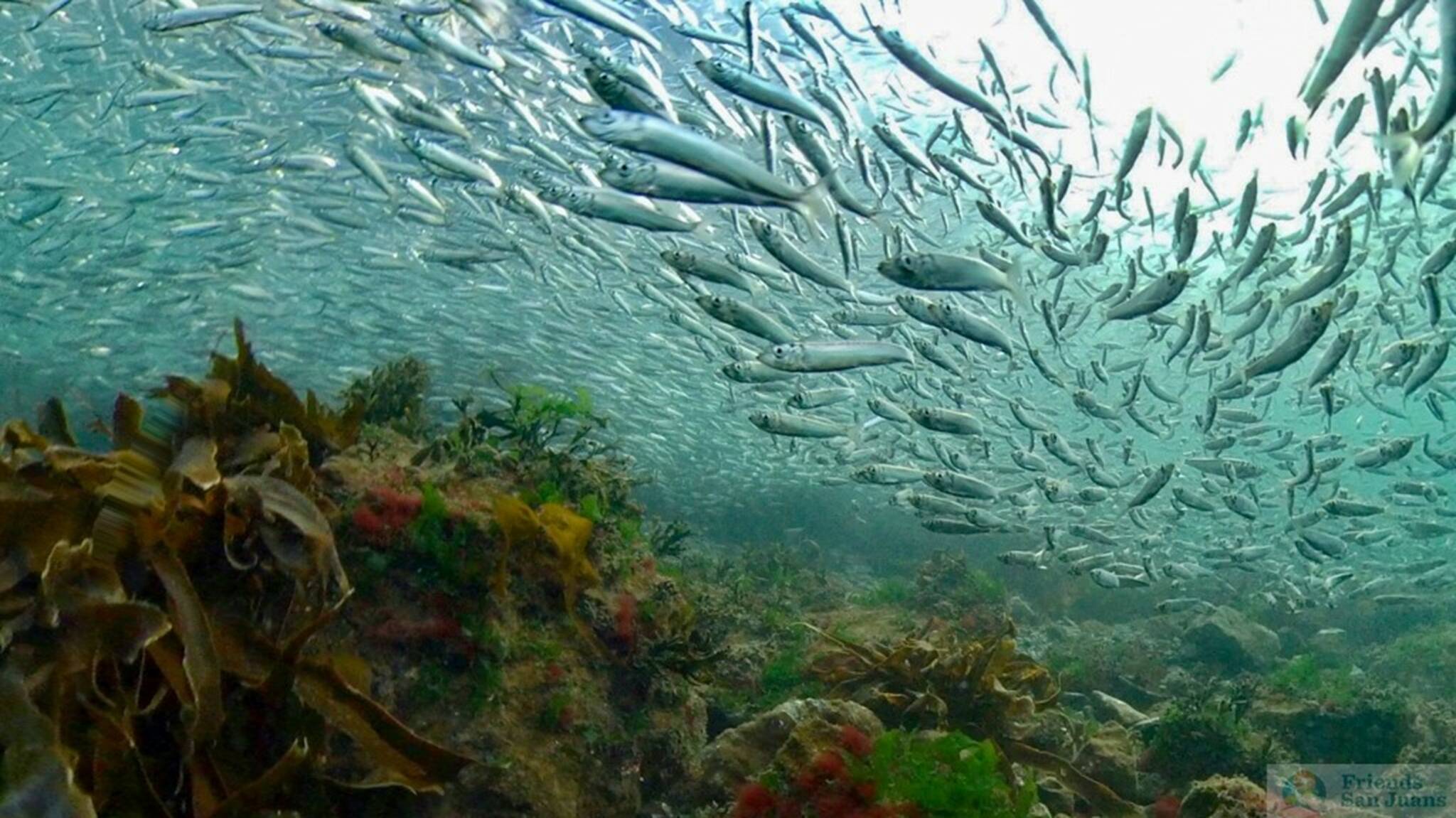By Tina Whitman, Science Director of Friends of the San Juans.
As a community of islands, the fish and marine species that live and feed throughout our waters, from Southern Resident Orca to Chinook salmon to Pacific herring, are part of us. When they are in distress, we as a community are in distress, which is why we, and our friends at the National Oceanic and Atmospheric Administration (NOAA), place marine recovery so high on the priority list.
It is no secret that our salmon populations and orcas are struggling. The Chinook population, for example, is down to 10 percent or less of its historic numbers. The Salish Sea and its beaches have typically provided food and shelter for salmon on their way out to sea and on their return. But now, the lack of salmon is impacting humans and our orca.
Thanks to support from NOAA, people across the San Juans and Washington State are working to restore critical coastal estuaries and protect vital areas for our fish and marine species. While Friends of the San Juans and other local organizations put thousands of dollars into marine recovery, much of the funding we rely on to support ocean and coastal management and restoration comes from federal-state partnerships and grant programs within NOAA. If this funding were to decrease or be cut entirely from the annual federal budget, we, our community, and our marine species would be greatly affected.
At Friends of San Juans, thanks to funding from NOAA, we have been able to implement 15 restoration projects in our island community. For example, we have removed unnecessary armoring, bulkheads, tide gates, or derelict docks and rebuilt the natural habitat needed for spawning forage fish. In other areas, we have protected or restored eelgrass habitats and coastal wetlands for juvenile Chinook salmon. This work, in turn, feeds seabirds, big fish, and marine mammals up the food chain.
We are at a pivotal time where we need to continue to implement and even scale up efforts in order to achieve success around marine recovery. The rapid and accelerating pace of climate change continues to increase pressure on our fisheries and we need to remain steadfast in doing our part to restore habitat and build resilience.
These efforts are vital, not just for the environment, but for the economy of our islands. Our economy is largely based on tourists, who are drawn to our corner of the world thanks to the unique ecosystems and culture. On top of that, Tribal ways of life, commercial fishing and other maritime trades depend on healthy waters and fish species.
We are grateful for NOAA and their past grant funding. And we are grateful to Representative Rick Larsen and Senators Maria Cantwell and Patty Murray who have continuously shown NOAA support. We hope they will continue to go to bat for NOAA as Congress creates the budget for next year. Full funding for NOAA will mean the San Juan Islands and Washington State are able to continue towards a resilient and sustainable fish and marine ecosystem.



